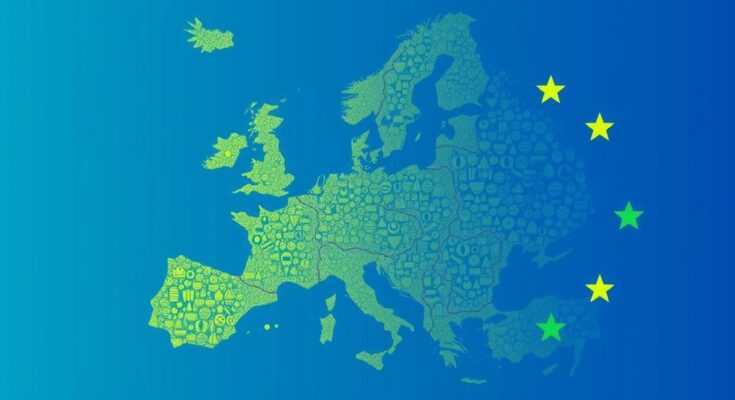As COP 29 approaches, pro-Kremlin media employs a strategy of acknowledging climate change but using it to attack Western policies. This shift represents an evolution from outright denial towards weaponizing climate discourse against the EU and its leaders while manipulating narratives to fit contrasting ideological positions. Ultimately, these tactics reveal a broader disinformation strategy aimed at undermining Western credibility through environmental skepticism and conspiratorial claims.
With the imminent UN Climate Change Conference (COP 29) in Azerbaijan, a discernible shift in the narrative surrounding climate issues has emerged from pro-Kremlin media. Such outlets generally acknowledge climate change but exploit it strategically to undermine the credibility of Western nations and promote anti-EU rhetoric. While prominent Russian media has largely ceased outright denial of climate science, they have increasingly weaponized discussions of climate change to criticize and delegitimize the policies of Western countries, particularly those of the European Union. Historically, pro-Kremlin media coverage of climate change has evolved; they now often highlight environmental initiatives while juxtaposing them with accusations of hypocrisy against Western governments. For instance, they have claimed that only Russian gas imports can adequately address climate issues, dismissing renewable energy as an effective solution. These narratives are tailored to resonate with specific demographics, such as left-leaning audiences in Latin America or conservative viewers in the USA, often utilizing contradictory viewpoints to maximize impact. Furthermore, while some outlets report positively on climate measures, others present an odd narrative suggesting potential benefits of climate change for Russia itself, promoting the idea of a future agricultural boon in previously inhospitable regions. Despite the presence of pseudoscientific claims, skepticism regarding climate change persists in some pro-Kremlin circles. These claims often portray the EU and its leadership as manipulative or misguided, reflecting a broader strategy of depicting Western nations as chaotic or incompetent rather than engaging substantively with climate science. This tactic aligns with a pattern in which pro-Kremlin commentary satirizes or criticizes green policies as overly ideological or even part of a sinister agenda. Such rhetorical assaults are often framed within a conspiratorial paradigm, as evidenced by various claims attributing nefarious intentions to Western politicians, suggesting that climate narratives are merely veils for ulterior motives. More ludicrous assertions have emerged, such as the idea of a conspiracy involving elite families invented the phenomenon of climate change or that climate measures are precursors to authoritarian governance. In conclusion, the manipulation of climate discourse by pro-Kremlin media serves more as a vehicle for broader attacks on Western credibility than as a genuine inquiry into climate science. By presenting climate change as an issue weaponized against the West, these narratives illustrate how disinformation can be opportunistically adapted to bolster political agendas. In this rapidly shifting landscape, it remains clear that Kremlin-affiliated propaganda will continue to exploit climate narratives as they see fit, particularly in contexts where they perceive potential benefits.
The exploration of climate change discourse by pro-Kremlin media has gained attention as the COP 29 conference approaches. Understanding the nuances of these narratives is crucial in recognizing the broader strategy employed by these outlets, which leverage climate issues to critique Western policies. Historically, Russian state-controlled media has gradually shifted from outright denial to a more complex engagement with climate issues, tailoring messages to various audiences while maintaining an anti-EU perspective. Analyzing these tactics reveals a coordinated effort to undermine Western credibility while simultaneously advancing conflicting ideologies surrounding climate science.
The pro-Kremlin approach to climate change discourse exemplifies a calculated strategy leveraging environmental issues to disparage Western nations and promote distrust in EU leadership. By blending acknowledgment of climate change with conspiratorial narratives, these outlets seek to reshape perceptions of both climate science and political legitimacy. This multidimensional propaganda highlights the ongoing opportunistic nature of disinformation tactics, suggesting that as global discussions evolve, so too will the narratives surrounding climate issues.
Original Source: euvsdisinfo.eu




